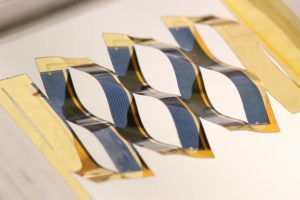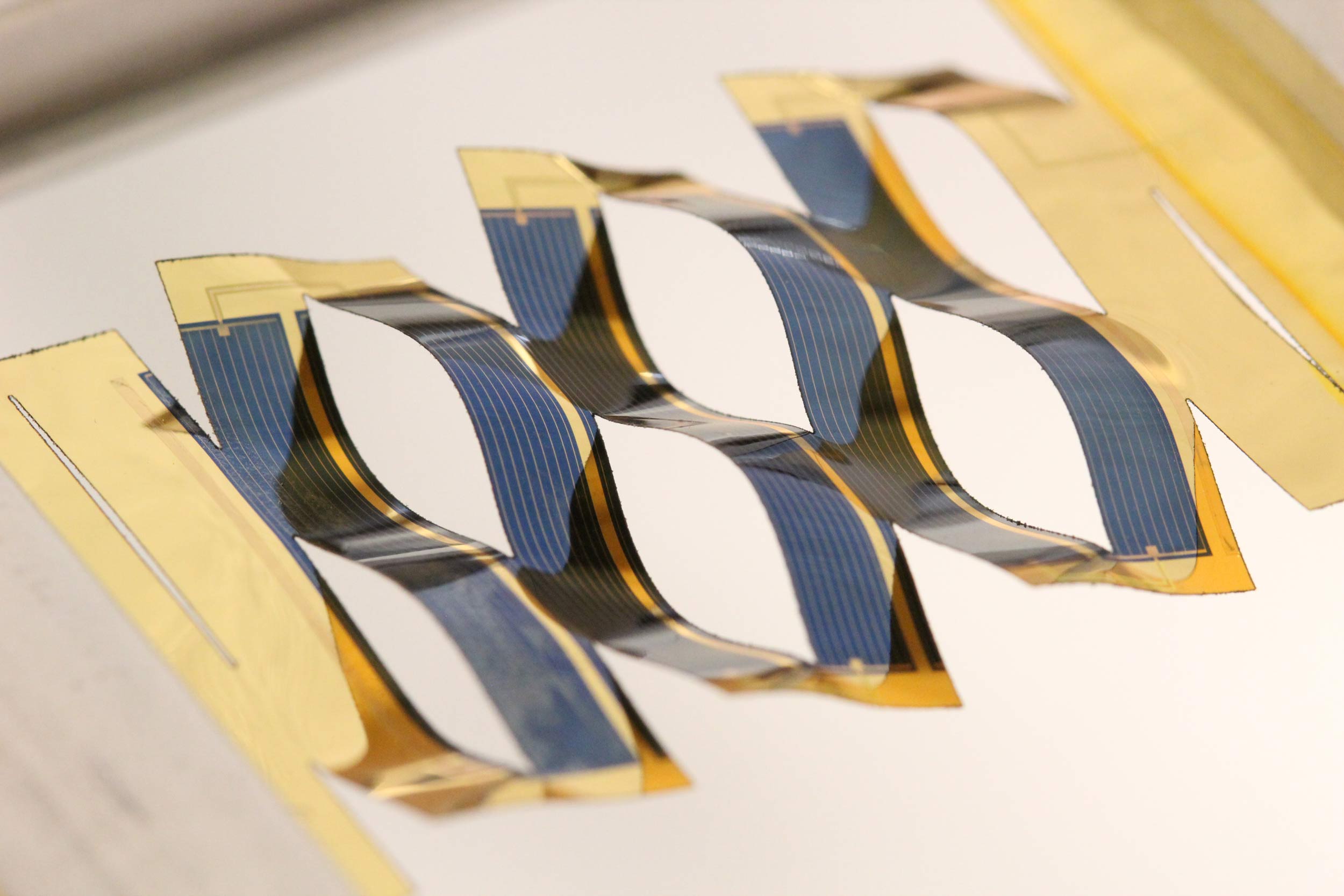Researchers at the University of Michigan have developed lightweight sun-tracking solar cells which borrow from the ancient Japanese art of paper cutting known as kirigami (切り紙) — an orgami variant which includes cutting as well as folding.
Solar cells are as much as 40 percent more efficient when they track the sun as it pans across the heavens, however, as U-Michigan’s Katherine McAlpine noted in a report published earlier this week, conventional trackers are simply “too heavy and bulky” to be mounted on vehicle surfaces and pitched rooftops. Which is why U-M researchers created a design which, in the words of the recently published paper’s first author Aaron Lamoureux, “takes what a large tracking solar panel does and condenses it into something that is essentially flat”.
The design takes what a large tracking solar panel does and condenses it into something that is essentially flat

University of Michigan’s kirigami inspired solar cells. (Image Credit: Aaron Lamoureux / U-Michigan)
In order to track the sun without the necessity of complex and costly components, the researchers ingeniously cut a kirigami inspired pattern from thin-film gallium arsenide solar cells which, when stretched, become an tilt-adjustable array of solar cells that can be controlled to within plus or minus one degree, according to the researchers’ published findings in the journal Nature Communications.
According to the paper’s authors, analysis of their new optical tracking system suggests the possibility of a new route towards the enablement of new applications for solar tracking as well as the inspiration for what could be “a broader range of optoelectronic and mechanical devices.”
This design suggests a pathway towards enabling new applications for solar tracking, as well as inspiring a broader range of optoelectronic and mechanical devices.
The design was created by a team of engineers in collaboration with — perhaps unsurprisingly — an artist.
In other U-Michigan news, university researchers recently developed sponge-like implants that can soak up wandering cancer cells. They call these new cancer sponging implants “super-attractors.”
























